Watch Dateline's latest episode Inside Israel: A Nation at War now on SBS On Demand.
Stream free On Demand

Inside Israel: A Nation At War
episode • Dateline • News And Current Affairs • 28m
episode • Dateline • News And Current Affairs • 28m
Under a scorching sun in the Jordan Valley, a silent phone standoff is underway. Even as a teen settler mounts his donkey to ride towards Israeli activists, no one speaks. They just film.
The awkward silence stretches on, punctured only by the donkey's braying.
Michal Shelef, a 73-year-old activist, says she'll stay in place "until he leaves".
Michal and her 27-year-old neighbour Yarden Golan are part of a left-wing activist group called Looking the Occupation in the Eye.
The organisation describes itself as a "group of ordinary Israeli citizens ... who care about human rights".
Its members volunteer as "human shields" for Palestinians facing violence and forcible displacement at the hands of mostly Israeli settlers in the West Bank. Their views are in the minority of Israeli society.
Yarden says people think "we're traitors ... or that we're crazy".
As the teen settler holds his camera a centimetre from Michal's face, she doesn't flinch. The activists film the teenager as he approaches them.
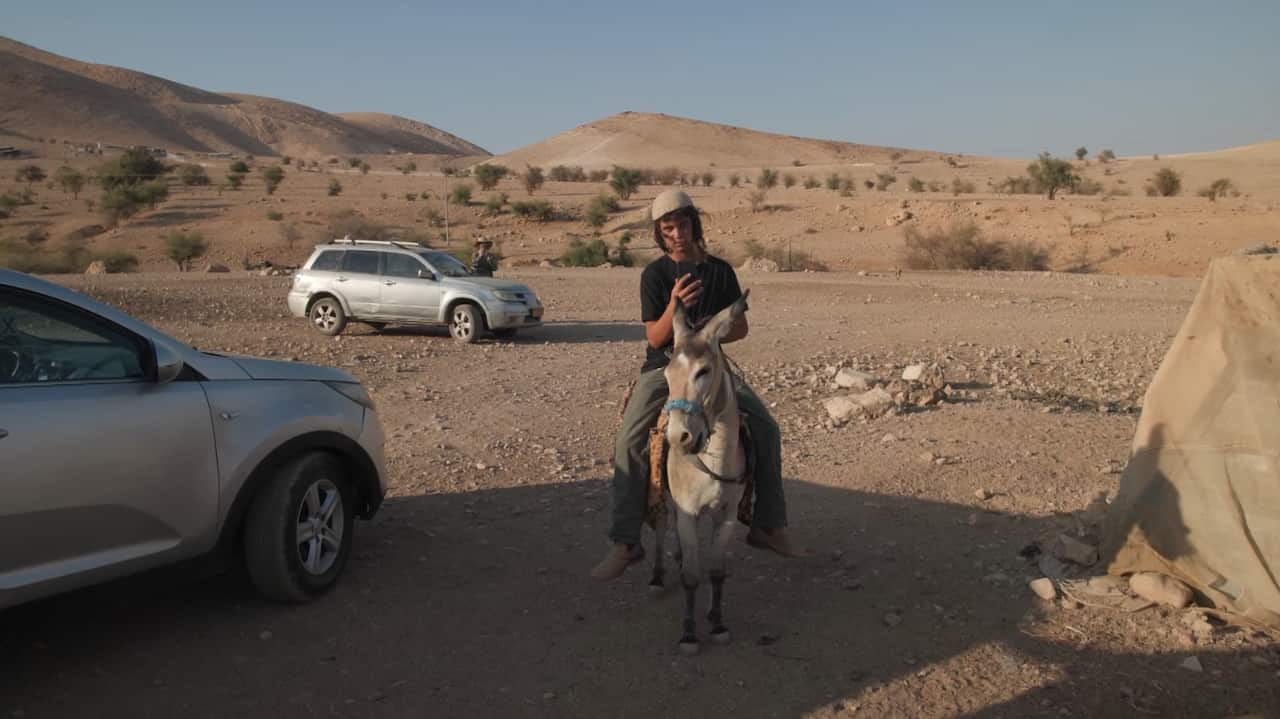
"Sometimes he tries to kick me in the shins, and I say: 'come on, I could be your grandmother'," Michal says.
"He's about 15 ... he's told to come here by the owner of the sheep. He's like a slave. They tell him what to do and he does it."
The activists say a settler movement called Amana, which believes Jewish people have a biblical claim to all Palestinian territories as part of the "Land of Israel", is behind what's happening here.
The movement is sanctioned by the UK and Canada due to settler violence.
Dateline sent Amana questions, and it denies involvement.
War in Gaza 'green light' for settlers
Since Hamas' 7 October 2023 attacks on Israel — in which 1,200 people were killed and 250 taken hostage — settlement expansion and settler violence in the West Bank have escalated.
Nearly 50,000 Palestinians have been forcibly displaced in the West Bank. That includes more than 6,400 forcibly displaced by the demolition of their homes by Israel, according to the United Nations Office for the Coordination of Humanitarian Affairs.
Another 2,200 have been forcibly displaced by settler attacks, and 40,000 have been displaced from three refugee camps in the northern West Bank.
One thousand Palestinians have been killed, according to the World Health Organization.
"October 7 was like a green light [for settlement expansion]," Yarden said.
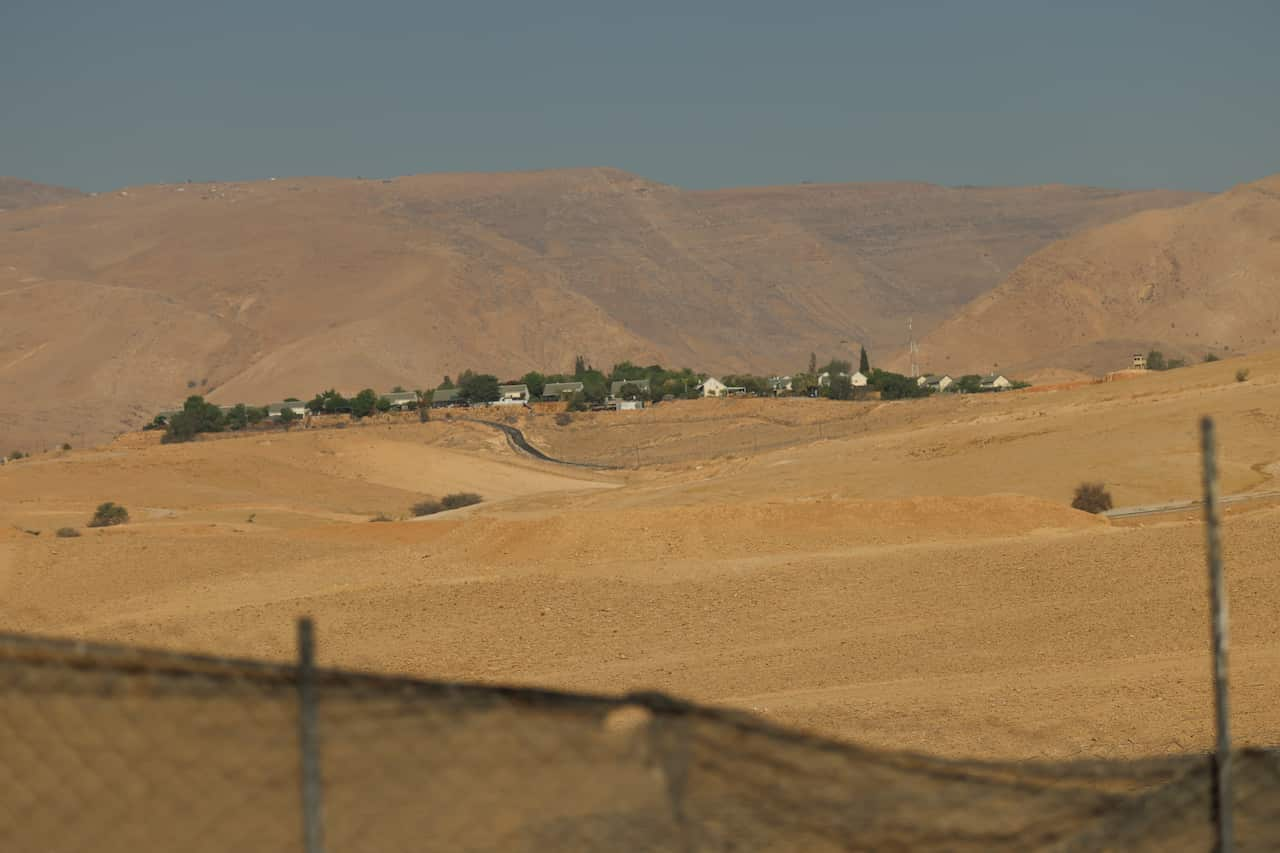
Settlements and Israel's occupation of the Palestinian Territories are illegal under international law, according to a ruling from the International Court of Justice, which Israel disputes.
There are now more than 700,000 mostly Israeli settlers living in the West Bank and East Jerusalem, which are part of the Occupied Palestinian Territories, recognised as the State of Palestine by Australia in September 2025.
One hundred and fifty-six other nations also recognise Palestine as a state.
Israel considers the West Bank disputed territory, not occupied territory.
Israel votes to annex the West Bank
Yarden sees events in the West Bank and Gaza as inextricably linked.
In his view: "the goal is to get rid of all the Palestinians".
In July, Israel's parliament — the Knesset — voted in favour of annexing the West Bank to claim it as part of Israel.
In August, Israel's far-right finance minister Bezalel Smotrich, who is part of the Religious Zionist party, approved development plans for 3,400 new houses in the territory.
"This effectively buries the idea of a Palestinian state, because there will be nothing and no one to recognise," Smotrich told a press conference.
Last week Benjamin Netanyahu and US President Donald Trump set the terms of a proposed 20-point peace plan, which received the backing of the Palestinian Authority and regional powerbrokers.
On October 4, Hamas said it was ready to release all remaining hostages but sought further negotiation on other parts of the proposal.
Netanyahu warned that if Hamas "supposedly accept" the plan "and then basically do everything to counter it, then Israel will finish the job by itself".
Public demands hostage deal
As the second anniversary of October 7 approaches, there is growing international condemnation of the war in Gaza.
And in Tel Aviv, hundreds of thousands of Israelis have for months been demanding their government strike a deal with Hamas to return the remaining hostages from Gaza.
One hundred and forty-seven hostages have been returned alive to Israel. Fifty remain in Gaza — 20 of whom are still believed to be alive.
One of them is Nimrod Cohen. His father Yehuda spoke to Dateline.
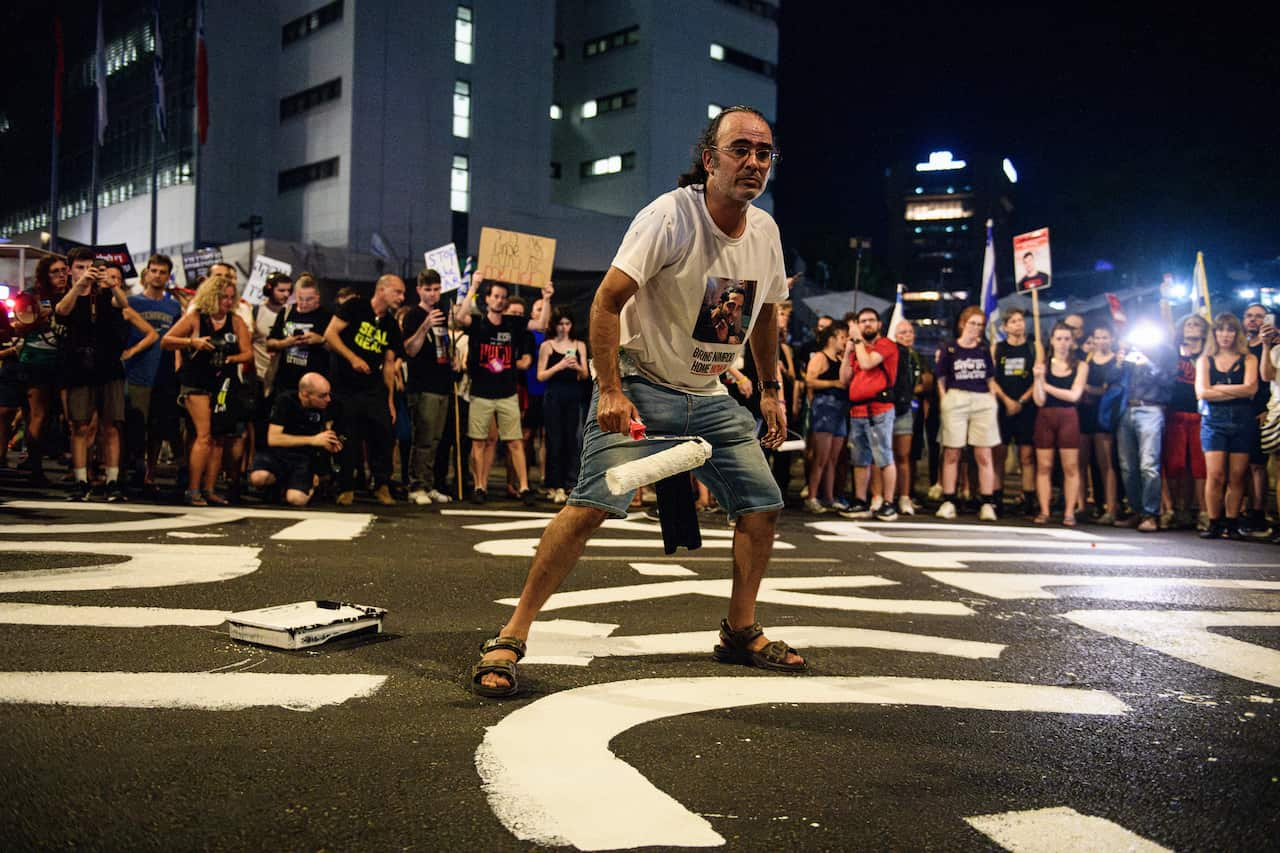
"We demand a ceasefire ending the war and getting a hostage deal," he said.
"The only way my son will be released will come only after a permanent ceasefire.
"After, IDF [Israel Defense Forces] full withdrawal from Gaza and prisoners exchange."
What polling shows about Israeli perspectives on the war
Israel is committing genocide in Gaza, according to a Special Commission of Inquiry commissioned by the UN’s Human Rights Council. Separately, the International Genocide Scholars Association and various human rights groups have come to the same conclusion.
Israel's Prime Minister Benjamin Netanyahu has rejected all findings.
"If we wanted to commit genocide, we would have done it in one afternoon. We have the capacity," he told local media on 10 August.
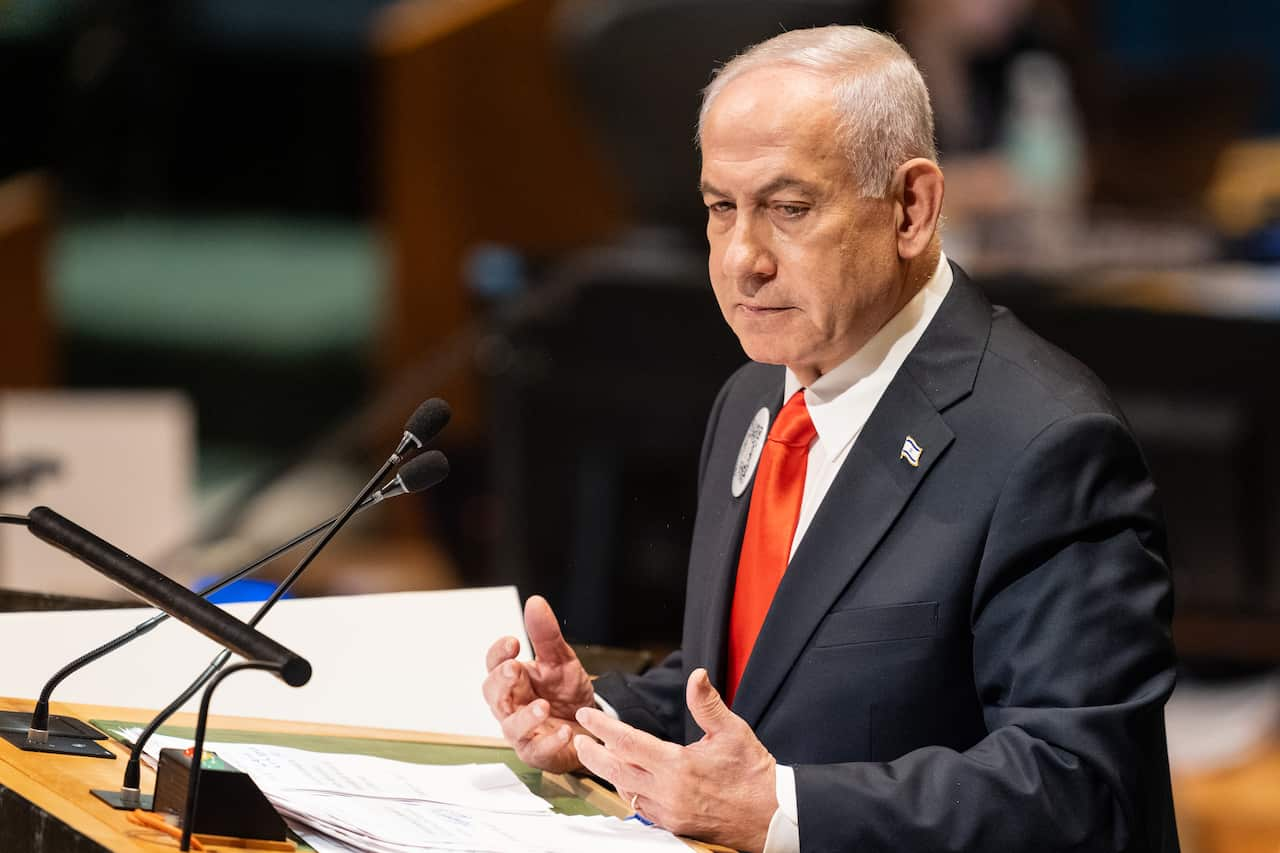
Two years after the events of October 7, the Israeli public remains traumatised.
According to various public opinion polls, Israelis are also largely unsympathetic to the documented suffering of Palestinians in Gaza.
Seventy-nine per cent of Israelis said they had "very little" or "no concern" about reports of starvation and suffering in Gaza, according to a July survey from the independent Israel Democracy Institute (IDI).
August data from aChord, another independent Israeli polling institute, found 62 per cent of respondents agreed with the claim that "there are no innocent bystanders in Gaza".
Professor Tamar Hermann from the IDI has studied Israeli public sentiment for 30 years. She said the reason for these views "is first and foremost the hostages".
"Because just before the starvation campaign started in the foreign media, we got video clips of starved hostages, and they looked like Holocaust refugees," she said.
"The other aspect is quite simple, from a psychological point of view. If you feel like a victim, it's very difficult to associate yourself with being the perpetrator of evil on others. So, you'd rather not see it."
'Dying in vain'
Israel's collective consciousness is focused on a desire to see its hostages returned.
At a September 'Bring them Home' demonstration in Tel Aviv, left-wing activist Yarden stood on a bus stop, facing the sea of protesters.
He held a sign reading 'so much we are willing to sacrifice for war, so little for peace'.
"All these people are dying in vain. Palestinians, hostages, soldiers ... all fighting for things that they cannot achieve," he told Dateline.
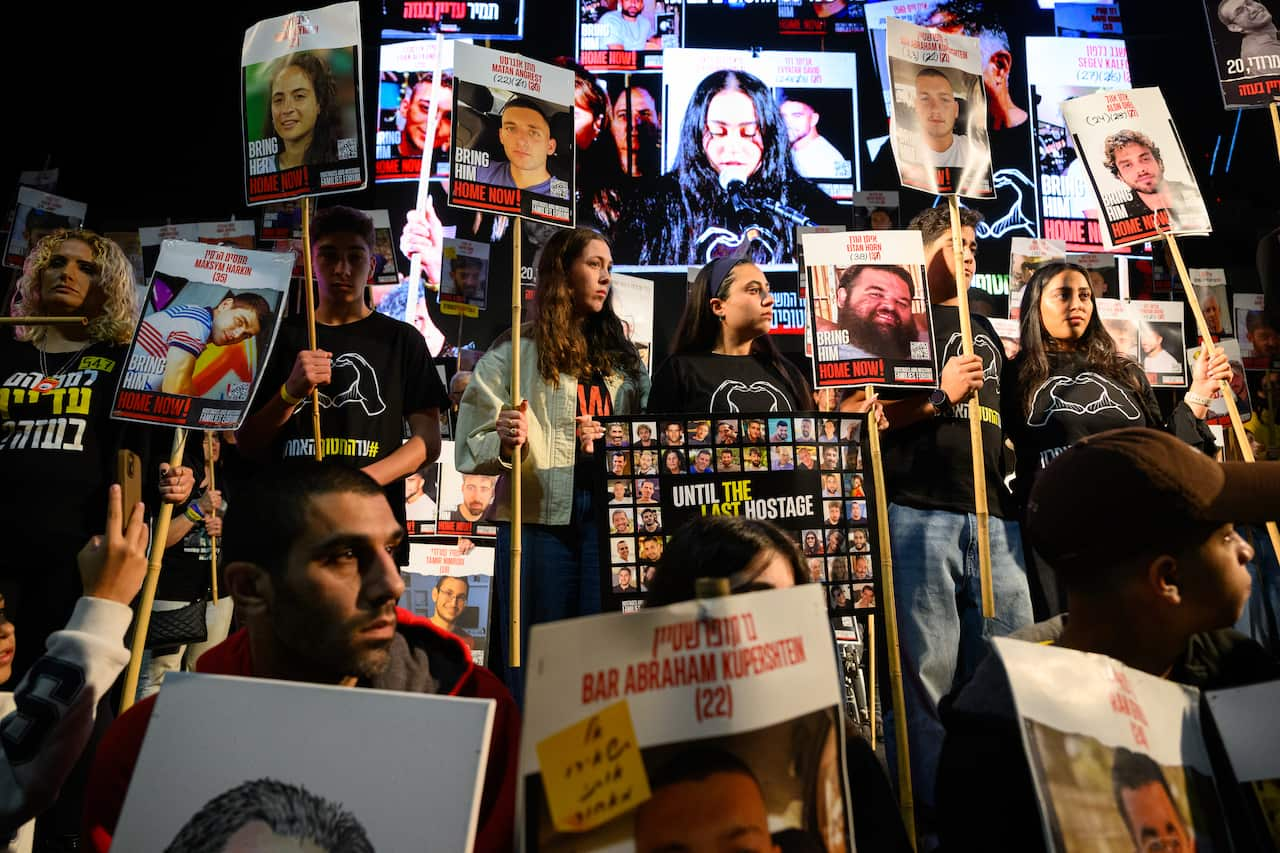
As some Western democracies advocate for a two-state solution, an outcome Netanyahu has flatly rejected, the question of 'what next' is elusive.
"We can't go back to the status quo, occupation days of October 6th ... it's not sustainable," Yarden said.
"We're just going to have more October 7s and more Gaza genocides if we keep on doing that."
For the latest from SBS News, download our app and subscribe to our newsletter.
Dateline is an award-winning Australian, international documentary series airing for over 40 years. Each week Dateline scours the globe to bring you a world of daring stories. Read more about Dateline
Have a story or comment? Contact Us


